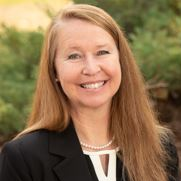STEM, Arts, and Special Education: Teacher Education Partnerships and Professional Development
A special issue of Education Sciences (ISSN 2227-7102). This special issue belongs to the section "Teacher Education".
Deadline for manuscript submissions: closed (31 October 2023) | Viewed by 1503
Special Issue Editors
Interests: science education; integrated STEM; engineering education; partnerships; teacher education
Special Issues, Collections and Topics in MDPI journals
Special Issue Information
Dear Colleagues,
This Special Issue, titled “STEM, Arts, and Special Education: Teacher Education Partnerships and Professional Development”, invites research articles that focus on all disciplinary areas as they relate to partnerships and professional development. Innovative partnerships and professional developments are key topics of the articles included in this Special Issue. Whether focusing on early childhood, elementary, secondary, or exceptional student (special) education (from birth to 18 years old), if there are partnerships or professional developments strengthening work in teacher education, then this Special Issue is a place to showcase that work. Generally, disciplines and age groups are siloed, and this Special Issue aims to open those spaces so that the work across contents and ages can be explored and highlighted for the impacts of partnering with academics, industries, schools, and multiple other organizations. Often these partnerships lead to professional developments, which, in this Special Issue, are broadly encompassing but focus on teacher education at some level. Perhaps the teacher education participants of the study presented are still in university, just beginning their careers, or perhaps they are expert teachers with many years in the field. This Special Issue is a place for authors to share how their work with partnerships and professional developments promote awareness and understanding of best practices that strengthen teacher education. Articles with a focus on diversity, equity, and inclusion or urban settings are especially welcome. Additionally, readers of this Special Issue can glean ideas to improve and implement in their own programs.
I/We look forward to receiving your contributions.
Prof. Dr. Andrea C. Burrows Borowczak
Dr. Caroline Pratt Marrett
Guest Editors
Manuscript Submission Information
Manuscripts should be submitted online at www.mdpi.com by registering and logging in to this website. Once you are registered, click here to go to the submission form. Manuscripts can be submitted until the deadline. All submissions that pass pre-check are peer-reviewed. Accepted papers will be published continuously in the journal (as soon as accepted) and will be listed together on the special issue website. Research articles, review articles as well as short communications are invited. For planned papers, a title and short abstract (about 100 words) can be sent to the Editorial Office for announcement on this website.
Submitted manuscripts should not have been published previously, nor be under consideration for publication elsewhere (except conference proceedings papers). All manuscripts are thoroughly refereed through a double-blind peer-review process. A guide for authors and other relevant information for submission of manuscripts is available on the Instructions for Authors page. Education Sciences is an international peer-reviewed open access monthly journal published by MDPI.
Please visit the Instructions for Authors page before submitting a manuscript. The Article Processing Charge (APC) for publication in this open access journal is 1800 CHF (Swiss Francs). Submitted papers should be well formatted and use good English. Authors may use MDPI's English editing service prior to publication or during author revisions.
Keywords
- teacher education
- partnerships
- professional development
- STEM
- arts
- exceptional student education
- special education
- pre-service teachers
- in-service teachers
- educational research






